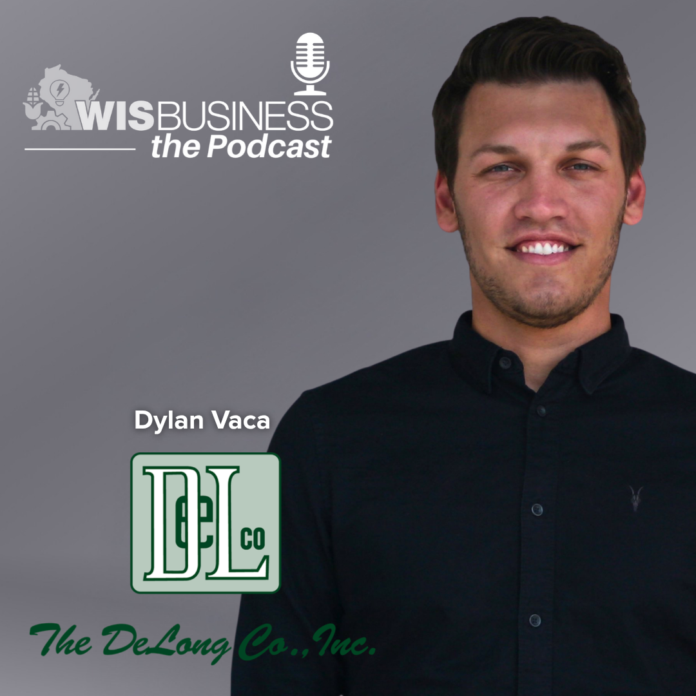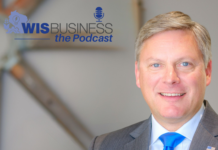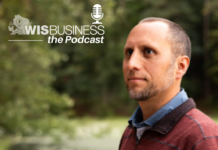This week’s episode of “WisBusiness: the Podcast” is with Dylan Vaca, brand and marketing manager at the DeLong Company.
He discusses the Clinton-based company’s approach to regenerative agriculture and sustainability, as well as its role in the agricultural commodity market.
About three years ago, the DeLong Co. received a $40 million USDA grant to advance what was then called “climate smart agriculture,” Vaca said. That concept has now evolved into regenerative agriculture, he explained, covering practices such as cover crops, reduced tillage and no-till operations, and nutrient management plans.
“Through two years now, we’ve been working with producers in the field to do practices that are recognized as regenerative … and essentially the funding that we won through that grant goes to the farmers in per-acre incentives, so that’s been really rewarding for us,” he said.
Vaca says the company’s strategy involves building infrastructure to help sustainably grown grain to “move seamlessly” through the supply chain.
The podcast explores the impact of some of these practices, which aim to reduce soil erosion and carbon emissions while saving farms money. It also highlights changes at the federal level to the programs providing support for such practices, as well as some nuances of the funding structure.
“We’ve enrolled, you know, over 230 or so growers and ultimately dispersed over $16 million of incentives to growers for doing these practices,” Vaca said, referencing efforts across multiple states. “We thankfully met those thresholds and can continue, but some other programs weren’t as lucky or didn’t have that opportunity.”
He also addresses the notion that regenerative agriculture can only work on small or “boutique farms,” arguing program results suggest otherwise.
“Farmers are implementing these practices … on real, working farms that are ultimately feeding thie commodity system,” he said. “At scale, regenerative agriculture, it’s about embedding resilience and ROI into every acre.”
Listen to the podcast below, sponsored by UW-Madison:







